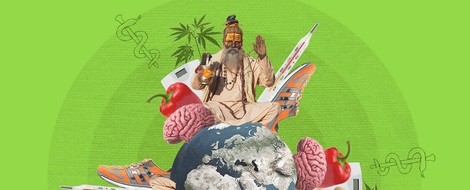Your podcast discovery platform
Curious minds select the most fascinating podcasts from around the world. Discover hand-piqd audio recommendations on your favorite topics.

piqer for: Health and Sanity Global finds
I was born in 1987 in Bucharest. I studied Psychology and Educational Sciences at the University of Bucharest. For two years I worked in a psychotherapy practice, dealing with gambling addicts. I'm an independent reporter, writing and doing video reportages mostly about social and political issues. I am currently based in Jena.
The Quirks Of Nostalgia
This episode of Hidden Brain explores the functions and effects of nostalgia on people. First off, we get a look at how the public perception of nostalgia changed over the centuries. In the 17th century, scientists thought it was “a condition unique to Swiss soldiers. They believed that the endless clanging of cow bells in the Alps triggered some kind of trauma to the brain”. For a long time, nostalgia had been approached like a mental disease, but in the 1980s something changed. It started being marketed by advertisers as something that will make you feel better.
The show’s guest, Clay Routledge, who recently published a book about nostalgia, confirmed that people in his studies did seem to feel better after reminiscing about personal experiences. It’s a way of getting to the core of what people find important. He said that nostalgia has a redemptive quality and that it can act as a defense mechanism.
In the second part of the show things get even more interesting, as Shankhar Vedantem raises the question of the role played by nostalgia in President Trump’s campaign. The answer, in a nutshell, is that there seems to also be a collective nostalgia, that makes people not only mushy, but mobilizes them to actually change something. Whether that change is good, or bad — that’s another subject of debate.
